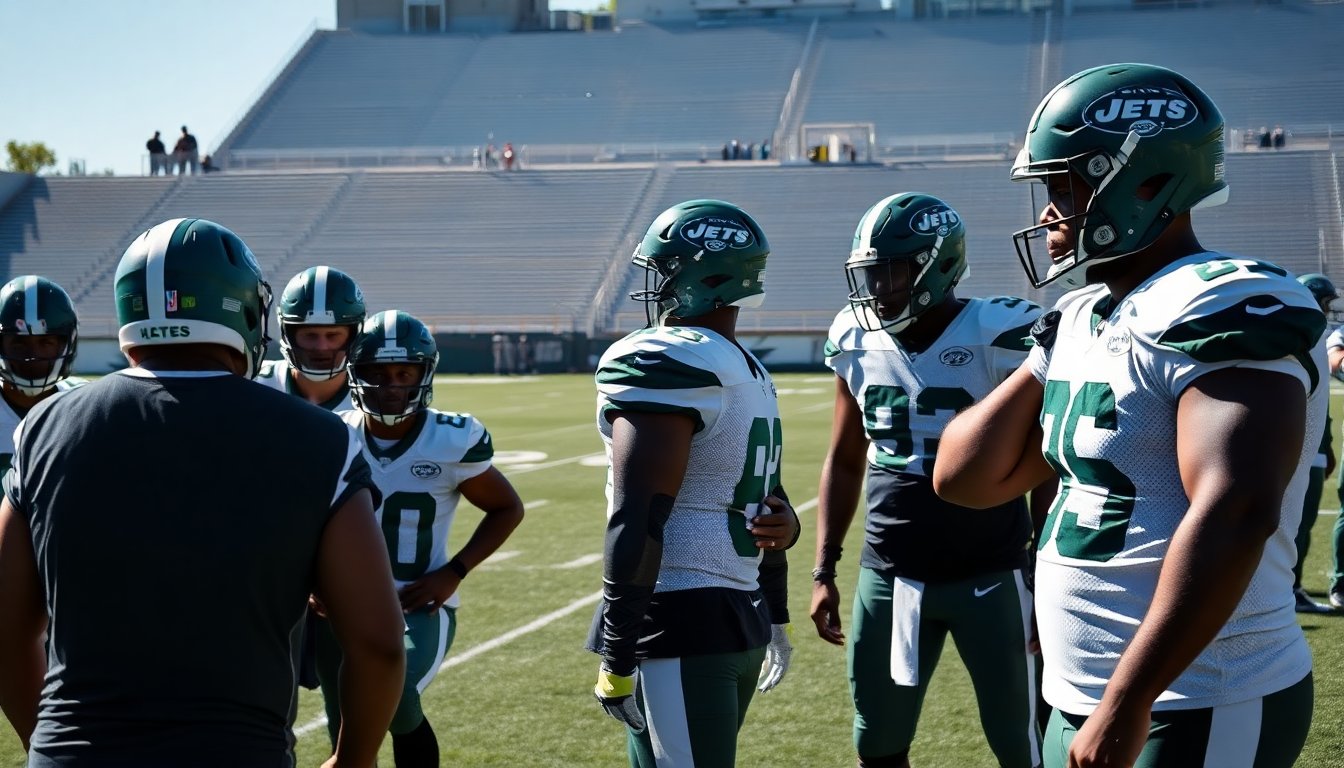Table of Contents
The New York Jets face a significant setback as star right guard Alijah Vera-Tucker has been sidelined for the entire season due to a torn triceps. The injury occurred during practice, underlining the difficulties teams encounter while preparing for the demanding NFL season. Head coach Aaron Glenn confirmed that Vera-Tucker will undergo surgery and begin a rehabilitation process that could last up to seven months. This unfortunate turn of events not only affects the Jets’ offensive line but also raises concerns about their overall performance in the forthcoming season.
The Impact of Vera-Tucker’s Injury
Vera-Tucker has been a crucial player for the Jets since being drafted 14th overall in the 2021 NFL Draft. His versatility allows him to play every position on the offensive line, except center. His absence will be felt not only in terms of skill but also in leadership, as he was recently voted one of the team’s captains.
Head coach Glenn acknowledged the importance of Vera-Tucker’s role, stating, “He was a big player for us, but we have to continue to keep rolling.” The focus now shifts to who will fill the gap left by Vera-Tucker. Currently, Xavier Newman is designated as the backup right guard, but competition remains intense. Joe Tippmann, who has played center for the past two seasons, may transition to right guard, while Josh Myers could step into the center position. This reshuffling could significantly influence the team’s performance as they approach the season.
Analyzing Offensive Line Dynamics
The Jets’ offensive line plays a vital role in their offensive strategy. With Vera-Tucker’s injury, the dynamics of this line will undoubtedly change. The ability of the remaining players to adapt will be crucial for the team’s success. Both Tippmann and Myers have been competing for their respective positions throughout training camp, and this injury may elevate the stakes for their performances. The depth chart is fluid, requiring the coaching staff to make swift decisions to ensure the line remains strong.
Moreover, the Jets’ upcoming matchup against the Pittsburgh Steelers, led by quarterback Aaron Rodgers, adds further pressure on the offensive line. As they prepare for this pivotal game, the Jets must find a way to maintain their offensive cohesion without one of their key players. The potential for disruption in communication and execution on the field could pose a significant challenge, especially against a formidable opponent.
Looking Ahead: What This Means for the Jets
Alijah Vera-Tucker’s injury not only diminishes the Jets’ depth but also threatens their aspirations for the season. The Jets have heavily invested in constructing a competitive team, and losing a player of Vera-Tucker’s caliber raises concerns about their resilience and adaptability. Historically, teams that can endure injuries and adjust their strategies tend to perform better in the long term.
As the season progresses, it will be essential for the Jets to implement strategies that mitigate the impact of Vera-Tucker’s absence. This might involve a greater reliance on the running game or adjustments in the passing scheme to accommodate the new offensive line configurations. The coaching staff’s ability to navigate these challenges will be critical in preserving team morale and performance.
In conclusion, while injuries are an unfortunate reality of professional sports, how teams respond can define their season. The Jets will need to unite, leverage their strengths, and adjust their game plan to continue their pursuit of success in the NFL.


